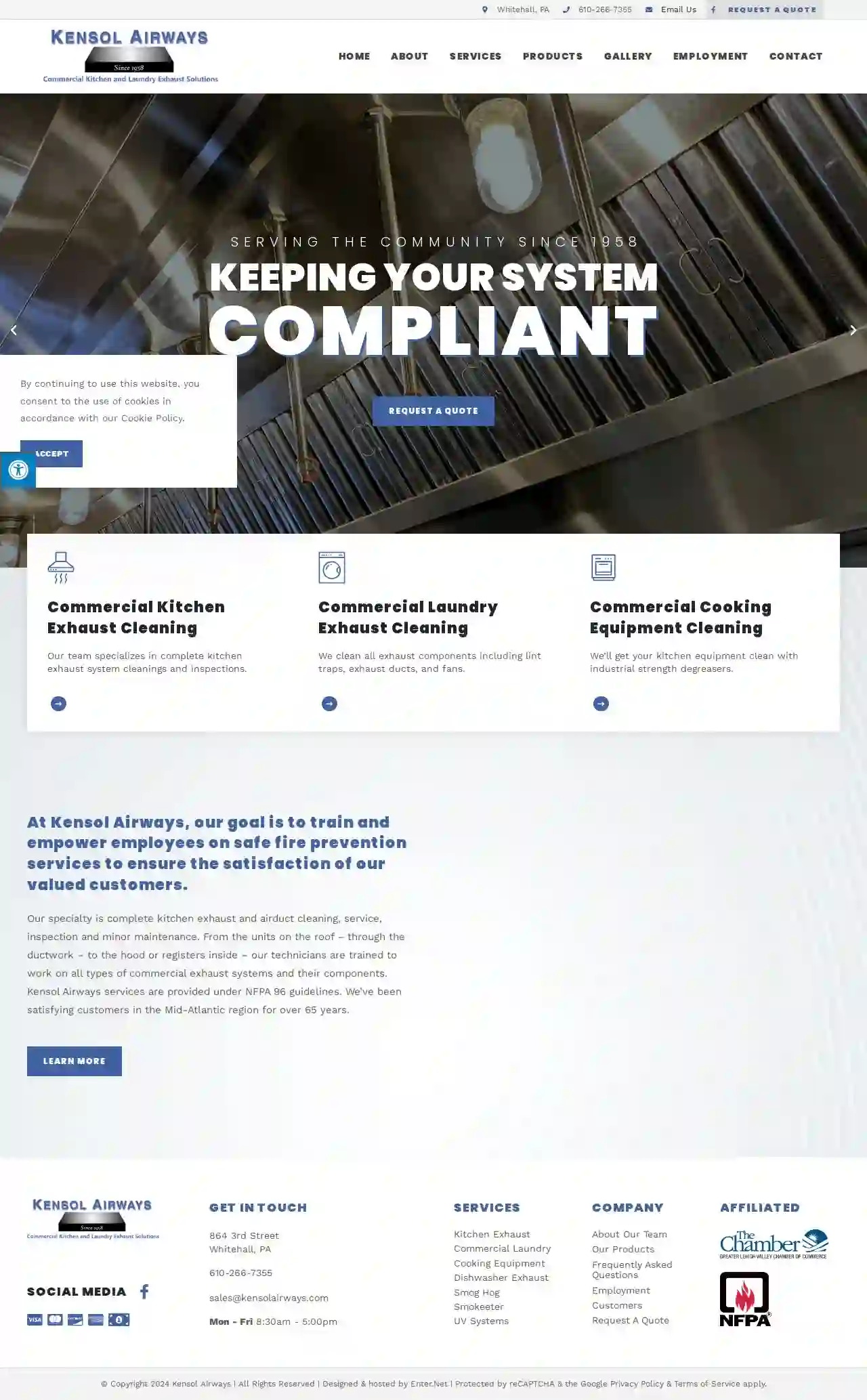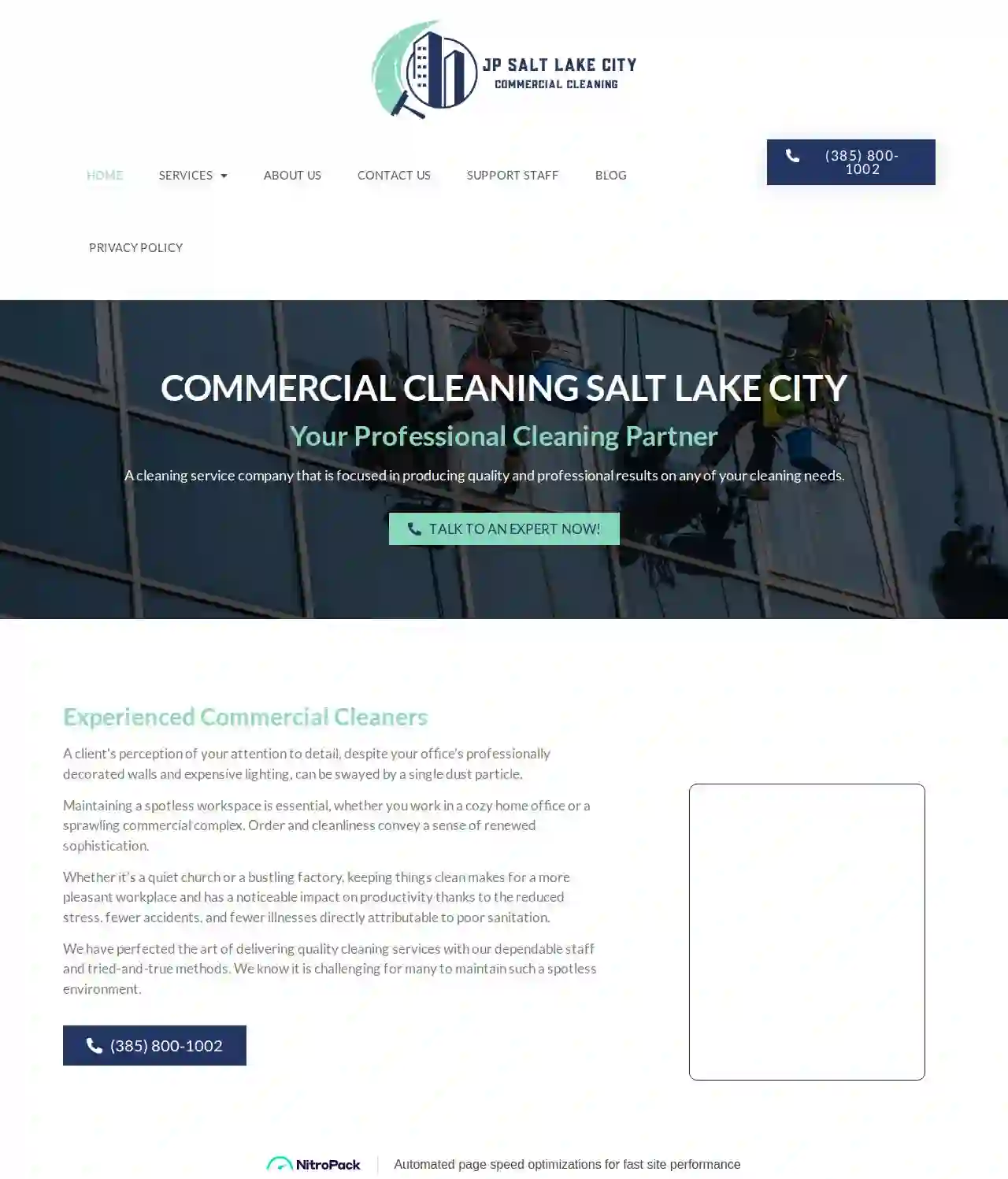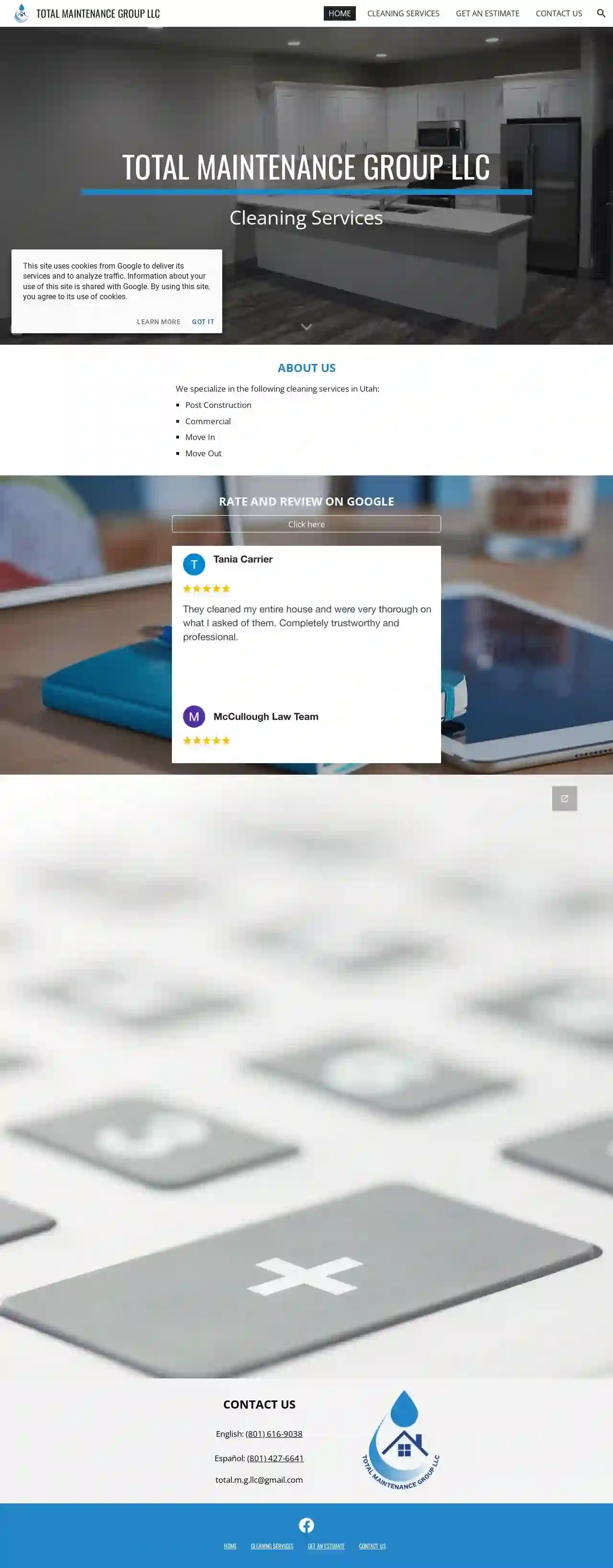Cleaning Services Midvale
Top 10 Cleaning in Midvale
Get up to 3 Housekeeping Services quotes for your project today! Compare profiles, reviews, accreditations, portfolio, etc... and choose the best offer.
Service Needed
City or Town

Park City Cleaning
527 reviewsSalt Lake City, US- Services
- Why Us?
Get Quote
Lehigh Property Services
51 reviewsLehi, US- Services
- Why Us?
Get Quote
Kensol Airways
49 reviewsLehi, US- Services
- Why Us?
Get Quote
Town & Country Office Cleaning
4.814 reviewsSalt Lake City, US- Services
- Why Us?
Get Quote
JP Salt Lake City Commercial Cleaning
51 reviewsSalt Lake City, US- Services
- Why Us?
Get Quote- L.
L.G. Cleaning Services LLC.
4.235 reviewsProvo, US- Services
- Why Us?
Get Quote 
Utah Home Cleaners
58 reviewsProvo, US- Services
- Why Us?
Get Quote
Forte Utah
3.619 reviewsSalt Lake City, US- Services
- Why Us?
Get Quote
Total Maintenance Group LLC
52 reviewsProvo, US- Services
- Why Us?
Get Quote
Christmas City Cleaning
51 reviewsLehi, US- Services
- Why Us?
Get Quote
Over 60,241+ Janitorial Services onboarded
Our cleaning pros operate in Midvale & surroundings!
CleaningMatch has curated and vetted the Best Janitorial Businesses near Midvale. Find the most reliable contractor today.
Frequently Asked Questions About Cleaning Services
Find answers to common questions about cleaning services and hiring cleaning companies in the USA.
- Prepare the Windows: Remove dust and debris from windows using a brush, vacuum, or damp cloth.
- Cleaning Solution: Use a commercial glass cleaner or a homemade solution of equal parts water and vinegar.
- Spray and Wipe: Spray the cleaning solution onto the window, ensuring even coverage.
- Squeegee Technique: Use a squeegee to wipe the cleaner from top to bottom, overlapping each stroke by about an inch. Wipe the squeegee blade clean after each stroke.
- Dry Edges: Wipe the edges of the window with a clean, dry microfiber cloth to remove any remaining moisture.
- Weekly: Suitable for busy households with children or pets, ensuring a consistently clean and healthy environment.
- Bi-weekly: A good option for smaller households or those who maintain a relatively clean home.
- Monthly: May be sufficient for individuals or couples who live a minimalist lifestyle.
- Quarterly or Annually: Can be suitable for deep cleaning or seasonal cleaning tasks.
- White Vinegar: A versatile cleaner that cuts through grease, removes stains, and deodorizes. Mix equal parts water and vinegar for a general-purpose cleaner.
- Baking Soda: A natural abrasive and deodorizer. Sprinkle baking soda on surfaces, let it sit, then scrub and rinse.
- Lemon Juice: Acts as a natural bleaching agent and disinfectant. Mix lemon juice with water for a cleaning solution or use it directly on stains.
- Castile Soap: A gentle and biodegradable soap made from plant oils. Mix a few drops of castile soap with water for a versatile cleaning solution.
- Essential Oils: Add a few drops of essential oils like tea tree oil or lavender oil to cleaning solutions for a natural fragrance and antibacterial properties.
- Residential Cleaning: Covers cleaning homes, apartments, and other living spaces.
- Commercial Cleaning: Focuses on cleaning offices, retail stores, and other business establishments.
- Deep Cleaning: A thorough and intensive cleaning that covers areas often neglected during regular cleaning.
- Move-In/Move-Out Cleaning: Comprehensive cleaning performed before or after moving into or out of a property.
- Post-Construction Cleaning: Specialized cleaning after construction or renovation projects to remove debris and dust.
- Specialized Cleaning: Includes services like carpet cleaning, window cleaning, upholstery cleaning, and more.
What is the best way to clean windows without streaks?
Achieving streak-free windows requires the right technique and cleaning solutions. Follow these steps:
For best results, clean windows on a cloudy day or in the shade to prevent the cleaning solution from drying too quickly and leaving streaks.
For best results, clean windows on a cloudy day or in the shade to prevent the cleaning solution from drying too quickly and leaving streaks.
How often should I have my house cleaned?
The frequency of house cleaning depends on factors like your lifestyle, the size of your house, and your personal preferences. Here's a general guideline:
You can adjust the frequency based on your needs and budget. Some people opt for weekly cleaning for high-traffic areas like kitchens and bathrooms and bi-weekly cleaning for the rest of the house.
You can adjust the frequency based on your needs and budget. Some people opt for weekly cleaning for high-traffic areas like kitchens and bathrooms and bi-weekly cleaning for the rest of the house.
What are some eco-friendly cleaning solutions?
Eco-friendly cleaning solutions are becoming increasingly popular as people prioritize sustainability and a healthier indoor environment. Here are some effective and eco-friendly cleaning solutions:
Remember to test these solutions on a small, inconspicuous area first to ensure they don't damage delicate surfaces.
Remember to test these solutions on a small, inconspicuous area first to ensure they don't damage delicate surfaces.
What are the different types of cleaning services?
Cleaning services cater to diverse needs and offer a range of options, including:
The best type of cleaning service depends on your specific needs, the size and condition of the property, and your budget.
The best type of cleaning service depends on your specific needs, the size and condition of the property, and your budget.
What is the best way to clean windows without streaks?
Achieving streak-free windows requires the right technique and cleaning solutions. Follow these steps:
For best results, clean windows on a cloudy day or in the shade to prevent the cleaning solution from drying too quickly and leaving streaks.
- Prepare the Windows: Remove dust and debris from windows using a brush, vacuum, or damp cloth.
- Cleaning Solution: Use a commercial glass cleaner or a homemade solution of equal parts water and vinegar.
- Spray and Wipe: Spray the cleaning solution onto the window, ensuring even coverage.
- Squeegee Technique: Use a squeegee to wipe the cleaner from top to bottom, overlapping each stroke by about an inch. Wipe the squeegee blade clean after each stroke.
- Dry Edges: Wipe the edges of the window with a clean, dry microfiber cloth to remove any remaining moisture.
For best results, clean windows on a cloudy day or in the shade to prevent the cleaning solution from drying too quickly and leaving streaks.
How often should I have my house cleaned?
The frequency of house cleaning depends on factors like your lifestyle, the size of your house, and your personal preferences. Here's a general guideline:
You can adjust the frequency based on your needs and budget. Some people opt for weekly cleaning for high-traffic areas like kitchens and bathrooms and bi-weekly cleaning for the rest of the house.
- Weekly: Suitable for busy households with children or pets, ensuring a consistently clean and healthy environment.
- Bi-weekly: A good option for smaller households or those who maintain a relatively clean home.
- Monthly: May be sufficient for individuals or couples who live a minimalist lifestyle.
- Quarterly or Annually: Can be suitable for deep cleaning or seasonal cleaning tasks.
You can adjust the frequency based on your needs and budget. Some people opt for weekly cleaning for high-traffic areas like kitchens and bathrooms and bi-weekly cleaning for the rest of the house.
What are some eco-friendly cleaning solutions?
Eco-friendly cleaning solutions are becoming increasingly popular as people prioritize sustainability and a healthier indoor environment. Here are some effective and eco-friendly cleaning solutions:
Remember to test these solutions on a small, inconspicuous area first to ensure they don't damage delicate surfaces.
- White Vinegar: A versatile cleaner that cuts through grease, removes stains, and deodorizes. Mix equal parts water and vinegar for a general-purpose cleaner.
- Baking Soda: A natural abrasive and deodorizer. Sprinkle baking soda on surfaces, let it sit, then scrub and rinse.
- Lemon Juice: Acts as a natural bleaching agent and disinfectant. Mix lemon juice with water for a cleaning solution or use it directly on stains.
- Castile Soap: A gentle and biodegradable soap made from plant oils. Mix a few drops of castile soap with water for a versatile cleaning solution.
- Essential Oils: Add a few drops of essential oils like tea tree oil or lavender oil to cleaning solutions for a natural fragrance and antibacterial properties.
Remember to test these solutions on a small, inconspicuous area first to ensure they don't damage delicate surfaces.
What are the different types of cleaning services?
Cleaning services cater to diverse needs and offer a range of options, including:
The best type of cleaning service depends on your specific needs, the size and condition of the property, and your budget.
- Residential Cleaning: Covers cleaning homes, apartments, and other living spaces.
- Commercial Cleaning: Focuses on cleaning offices, retail stores, and other business establishments.
- Deep Cleaning: A thorough and intensive cleaning that covers areas often neglected during regular cleaning.
- Move-In/Move-Out Cleaning: Comprehensive cleaning performed before or after moving into or out of a property.
- Post-Construction Cleaning: Specialized cleaning after construction or renovation projects to remove debris and dust.
- Specialized Cleaning: Includes services like carpet cleaning, window cleaning, upholstery cleaning, and more.
The best type of cleaning service depends on your specific needs, the size and condition of the property, and your budget.